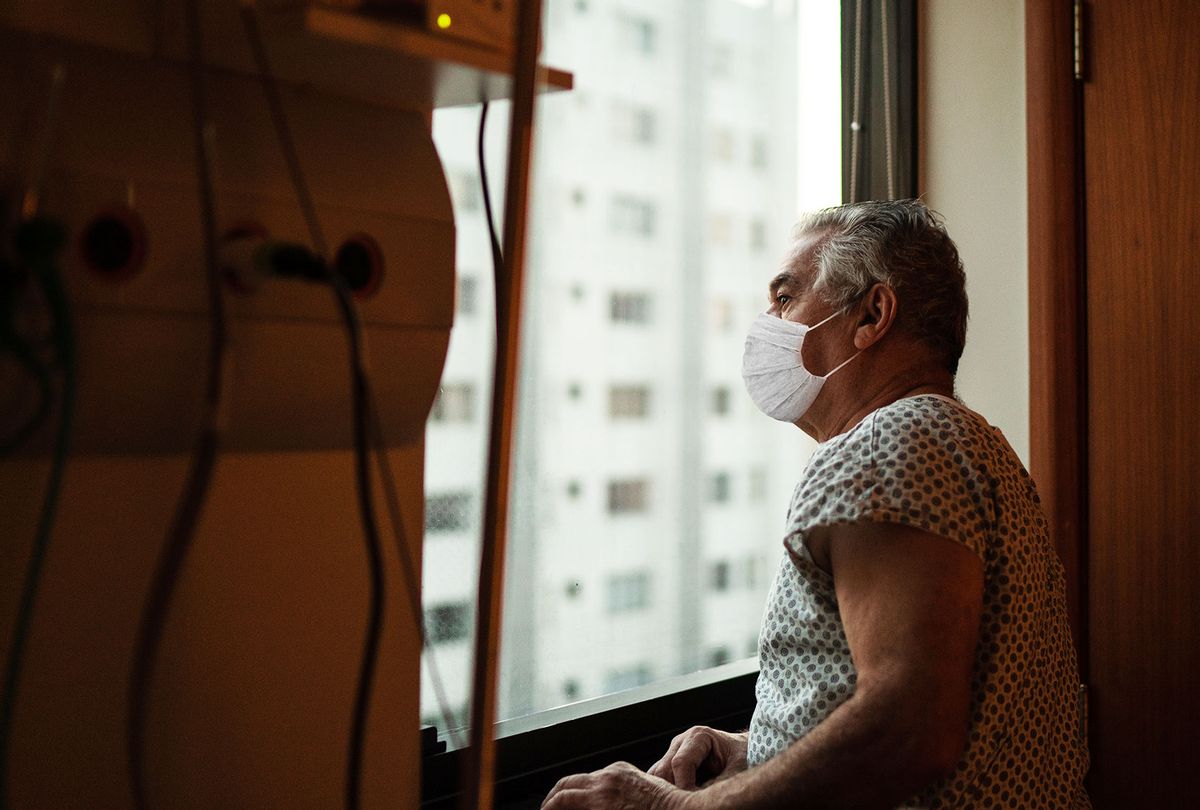Recently, scientists have discovered peculiar connections between neurological conditions and COVID-19 risk. We know that there is a heightened risk of dying of COVID-19 complications for those with schizophrenia. Now, this week comes a new study which finds that people with dementia are twice as likely to contract COVID-19 as those without the deadly cognitive disease.
The study, which was mainly written by researchers from Case Western University and published on Tuesday in Alzheimer's & Dementia: The Journal of the Alzheimer's Association, analyzed electronic health record data for nearly 62 million Americans adults.
"Currently, there is little if any quantitative analysis of the risks and outcomes for COVID‐19 in individuals with [Alzheimer's disease] or dementia in the United States," the authors explained.
But what accounts for the connection between contracting COVID-19 and dementia? The answer may lie in the relationship between the brain and the body.
Indeed, researchers hypothesized that, because individuals with Alzheimer's disease and dementia experience damage to the blood-brain barrier, they may be more susceptible to COVID-19 — just as they are to other diseases. In addition, they speculated that patients with dementia might struggle to follow public health guidelines to prevent transmission such as wearing masks, washing hands and social distancing.
Rsearchers also wanted to test whether patients with dementia who were infected with COVID-19 were at a higher risk of dying, noting that "SARS‐CoV2 has also been shown to affect the brain directly with reports of encephalitis, thrombotic events, and brain invasion."
The researchers found that patients with dementia were both more likely to develop COVID-19 and were more likely to suffer severe adverse effects after being infected with the novel coronavirus. Although only 25% of the overall number of patients studied in the article were hospitalized due to COVID-19, 59% of those with dementia had to be hospitalized. Similarly, although only 5% of the overall number of patients died as a result of COVID-19, that number quadrupled to 20% among those who had dementia.
The authors also noted a racial disparity. Among black patients with dementia who contracted COVID-19, a staggering 73% had to be hospitalized and 23% ultimately passed away, compared to 53% of white patients with dementia and COVID-19 being hospitalized and 19% of white patients dying.
This is the second recent study to draw attention to the vulnerability of mentally ill individuals to COVID-19. As alluded to, earlier this month a study published in the journal JAMA Psychiatry found that individuals on the schizophrenia spectrum were almost three times as likely to die after being diagnosed with COVID-19.
"In the first month and a half after COVID diagnosis, patients with schizophrenia as compared to patients without psychiatric disorders were roughly two-and-a-half times more likely to die," Mark Olfson, a professor of psychiatry at Columbia University, told Salon by email about the study. "An increased mortality risk was not found for patients with mood or anxiety, two common less severe conditions."
Experts also anticipate that there will be lingering psychological trauma caused by the pandemic, with the lockdowns and fear of death altering human behavior long after the plague itself has passed.
"This will take generations to get past," Dr. David Reiss, psychiatrist in private practice and expert in mental fitness evaluations, told Salon last month. "And that's because at every stage of development, things have been disrupted."



Shares